LETTER 293
您可以在百度里搜索“The Works of Charles and Mary Lamb — Volume 6 艾草文学(www.321553.xyz)”查找最新章节!
LETTER 293
CHARLES LAMB TO BERNARD BARTON
[Dated at end: 9 October 1822.]
Dear Sir—I am asham'd not sooner to have acknowledged your letter and poem. I think the latter very temperate, very serious and very seasonable. I do not think it will convert the club at Pisa, neither do I think it will satisfy the bigots on our side the water. Something like a parody on the song of Ariel would please them better.
Full fathom five the Atheist lies,
Of his bones are hell-dice made.—
I want time, or fancy, to fill up the rest. I sincerely sympathise with you on your doleful confinement. Of Time, Health, and Riches, the first in order is not last in excellence. Riches are chiefly good, because they give us Time. What a weight of wearisome prison hours have [I] to look back and forward to, as quite cut out [of] life—and the sting of the thing is, that for six hours every day I have no business which I could not contract into two, if they would let me work Task-work. I shall be glad to hear that your grievance is mitigated.
Shelly I saw once. His voice was the most obnoxious squeak I ever was tormented with, ten thousand times worse than the Laureat's, whose voice is the worst part about him, except his Laureatcy. Lord Byron opens upon him on Monday in a Parody (I suppose) of the "Vision of Judgment," in which latter the Poet I think did not much show his. To award his Heaven and his Hell in the presumptuous manner he has done, was a piece of immodesty as bad as Shelleyism.
I am returning a poor letter. I was formerly a great Scribbler in that way, but my hand is out of order. If I said my head too, I should not be very much out, but I will tell no tales of myself. I will therefore end (after my best thanks, with a hope to see you again some time in London), begging you to accept this Letteret for a Letter—a Leveret makes a better present than a grown hare, and short troubles (as the old excuse goes) are best.
I hear that C. Lloyd is well, and has returned to his family. I think this will give you pleasure to hear.
I remain, dear Sir, yours truly
C. LAMB.
E.I.H.
9 Oct. 22.
[Barton had just published his Verses on the Death of P.B. Shelley, a lament for misapplied genius. The club at Pisa referred particularly to Byron, Leigh Hunt, and Trelawney. Trelawney placed three lines from Ariel's song in "The Tempest" on Shelley's monument; but whether Lamb knew this, or his choice of rival lines is a coincidence, I do not know. Trelawney chose the lines:—
Nothing of him that doth fade
But doth suffer a sea-change
Into something rich and strange.
There is no other record of Lamb's meeting with Shelley, who, by the way, admired Lamb's writings warmly, particularly Mrs. Leicester's School (see the letter to Barton, August 17, 1824).
Byron's Vision of Judgment, a burlesque of Southey's poem of the same name, was printed in The Liberal for 1822.] The Works of Charles and Mary Lamb — Volume 6




